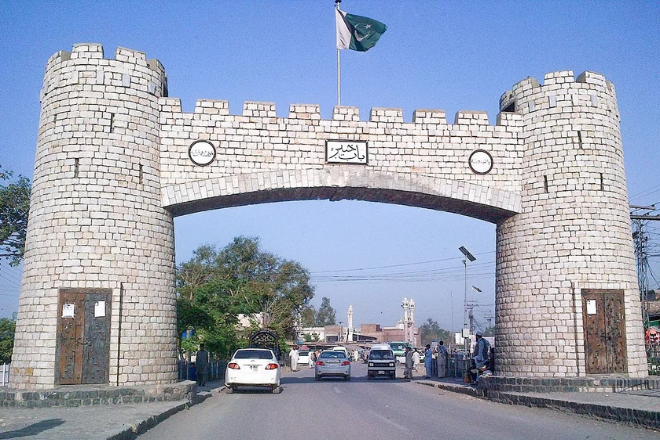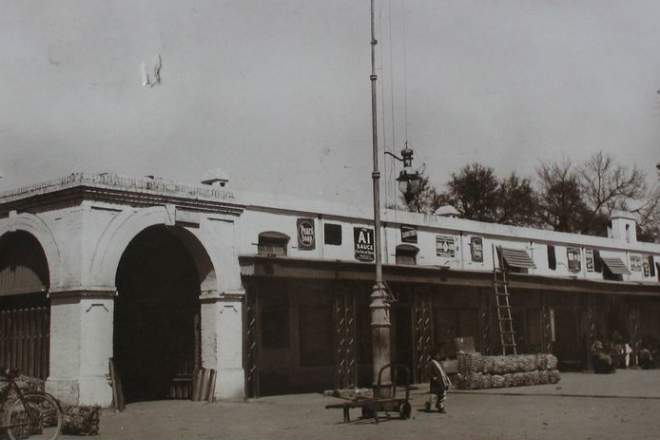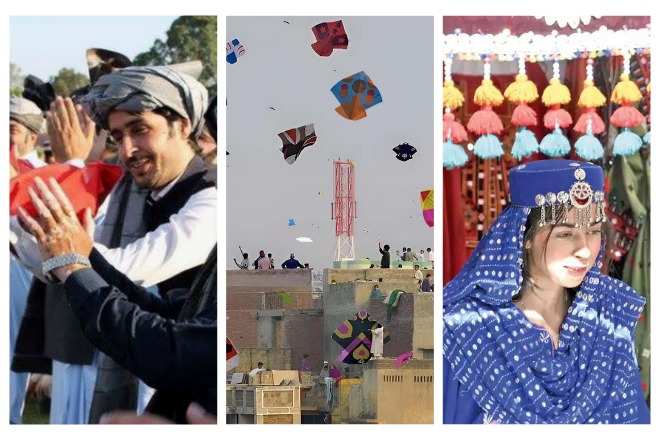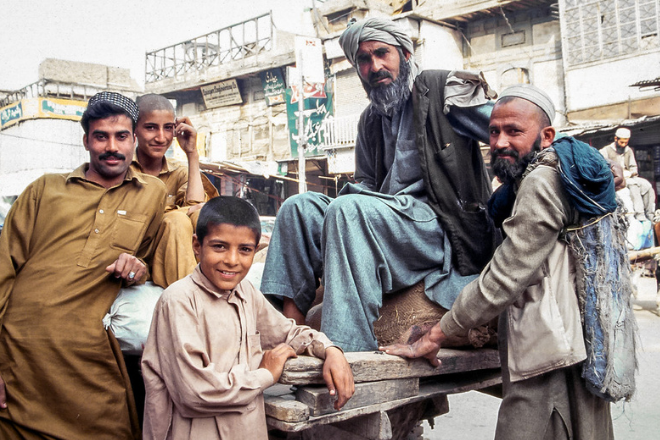Home » Destinations » Khyber Pakhtunkhwa » Peshawar
Peshawar Pakistan is one of South Asia’s historic gateway cities, shaped by trade routes, empires, and layered cultures over centuries. It sits close to the Khyber Pass corridor, which made it a major stop for merchants, travelers, and armies moving between Central Asia and the plains of the subcontinent.
Today, Peshawar is best experienced through its Old City lanes, heritage landmarks, bazaars, museums, and food streets. If you enjoy walking, architecture, storytelling, and real street-life culture, things to do in Peshawar naturally revolve around exploring neighborhoods rather than rushing to “viewpoints.”
Peshawar’s identity grew through multiple historical phases, including the broader Gandhara era (reflected in museum collections), Mughal-era architecture (like the Mahabat Khan Mosque built in the 1600s), and later periods that shaped its urban core and bazaars. The result is a city where you can feel history without needing a long lecture, especially in the Old City and its marketplaces.

If someone searches for places to visit in Peshawar, these are the most meaningful stops for culture, history, and city character.
One of the city’s most important sites, known for its large Gandhara art collection and extensive archaeological displays. This is where you understand why Peshawar matters beyond modern city life.
A living Old City bazaar known historically as the “Storytellers’ market.” Even now, it remains a strong snapshot of Peshawar’s street culture, tea houses, trade lanes, and daily rhythm.
A Mughal-era mosque built in 1630, recognized for its white marble façade and Old City setting.
Internal link anchor: Visit Mahabat Khan Mosque Peshawar → /destinations/khyber-pakhtunkhwa/peshawar/mahabat-khan-mosque/
Bala Hisar is an iconic fort associated with Peshawar’s strategic role across different periods. Access rules can change because they are connected with official administration, so visitors should check locally before planning.
A heritage haveli-style home in the city’s historic fabric, best for travelers who enjoy interiors, woodwork, and old Peshawar neighborhood identity.
Peshawar has city parks used for evening walks and family picnics. Examples include Jinnah Park (also historically known as Cunningham Park).

From City | Approx. Road Distance | Route Overview |
Islamabad | ~184 km | Islamabad → M-1 Motorway → Peshawar |
Lahore | ~500–520 km | Lahore → Islamabad → M-1 → Peshawar |
Faisalabad | ~460 km | Faisalabad → Motorway network → Peshawar |
Quetta | ~833–840 km | Quetta → N-50/N-55 connections → Peshawar |
Karachi | ~1,400–1,500 km | Flight to Peshawar OR road via national highways |
Peshawar has hot summers and cooler winters. For comfortable exploration (especially Old City walks), the more pleasant window is generally October to April.
Peshawar offers a mix of accommodation types:
Best practice: choose accommodation with easy access to main roads if you plan day trips like Warsak Dam Peshawar, and plan a separate Old City visit window rather than trying to drive inside congested lanes.
These activities match the icons at the start and reflect what visitors can realistically do in Peshawar.
Food in Peshawar is deeply tied to markets, not restaurants alone. Eating here is about where you eat as much as what you eat.
These names matter — they are real, established food zones:
These are working markets, not curated food courts.
Peshawar acts as a trading hub for produce from nearby regions rather than a large growing zone itself.
Commonly found and consumed:
Dry fruits commonly sold in city markets:
These are sold loose in traditional dry-fruit shops, especially in Old City markets.
Tea is constant. Green tea and black tea are consumed throughout the day, often accompanying conversation rather than meals.
Food in Peshawar is not decorative. It is filling, social, and meant to be shared.

Peshawar’s culture is shaped by its role as a gateway city between Central Asia, Afghanistan, and the plains of the subcontinent. The people here are known for directness, hospitality, and pride in tradition, qualities that visitors often notice within hours of arrival.
This multilingual environment reflects Peshawar’s layered population rather than recent migration alone.
Traditional clothing is still part of daily life, not limited to festivals.
Dressing modestly is not enforced but is socially appreciated, especially in Old City areas and mosques.
Peshawar shares broader Pashtun cultural expressions found across Khyber Pakhtunkhwa:
Peshawar does not host large, tourism-branded festivals, but cultural life is marked by:
Culture here is lived quietly, not announced loudly.
People in Peshawar are often described as:
Hospitality is practical. You may be offered tea, directions, or food without ceremony. This sincerity is central to the city’s identity.
Peshawar is a city destination, so “wildlife” is mostly experienced through:
Category | Species / Types | Where Found | Visibility |
Birds | sparrows, pigeons, mynas, crows | neighborhoods, parks | common |
Birds (seasonal) | migratory waterbirds (varies by season) | water-adjacent areas outside the main city | occasional |
Small mammals | stray cats, small rodents | urban environments | occasional |
Category | Types | Where Found | Visibility |
Shade trees | common avenue and park trees | major roads, parks | common |
Garden plants | seasonal flowers and shrubs | maintained parks | common |

If you are continuing north after Peshawar, use the city as a base for planning and a rest stop rather than trying to do everything in a few hours.
C-03, Plaza 64-65, Square Commerical, Bahria Town Phase 7, Rawalpindi/Islamabad
info@guidetopakistan.pk
+92 326 1487487
Want to experience Peshawar beyond “just a quick stop”?
Peshawar is an experience-driven cultural city, not a resort-style destination. It is best understood through its Old City walks, heritage sites, food culture, and everyday street life rather than through isolated attractions.
A well-paced visit requires 1 to 2 full days. One day allows for the Old City, the museum, and the food experience. Two days provide time to visit heritage sites, markets, and explore at a relaxed pace without rushing.
Yes, especially for travelers interested in history, culture, and people-to-people experiences. Visitors should approach Peshawar with curiosity and respect rather than expecting resort-style tourism infrastructure.
Yes, but selectively. The Old City is best explored on foot in short segments, combined with rickshaw travel between areas. Walking allows deeper cultural observation, but planning routes in advance improves the experience.
Modest dress is appreciated, especially in mosques and Old City neighborhoods. Photography of people should always be permission-based. Respectful conversation and calm behavior are valued more than performative tourism.
Peshawar is primarily about everyday culture. While it has important landmarks, its real value lies in markets, food streets, language, and local interactions that reveal how the city lives today.
Yes. Peshawar works well as a starting or ending point for travel to the Swat Valley, Chitral, or Parachinar, and as a base for nearby micro-destinations like Warsak Dam.
Peshawar appeals most to culture-focused travelers, history enthusiasts, photographers, and food explorers. It is less suited to travelers seeking nightlife, luxury resorts, or fast-paced sightseeing.